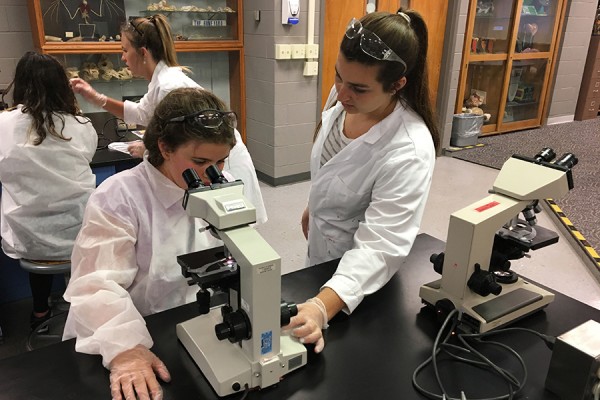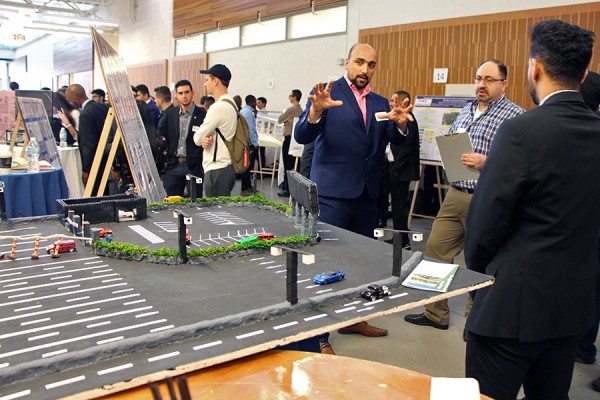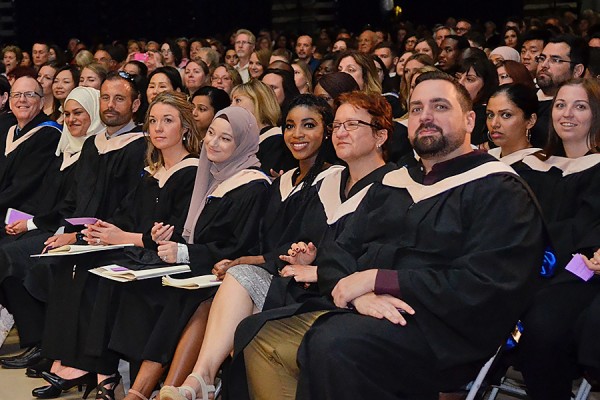 Aubrey Hiuser tries out a microscope during hands-on learning in the summer BioCamp.
Aubrey Hiuser tries out a microscope during hands-on learning in the summer BioCamp.
Children with an affinity for science got to choose from two new Lancer Camps this year. BioCamp and Science Discovery camp offer mini-experiments, projects, demonstrations, and science-themed games for science lovers.
Nine-year-old Daniel Hiuser make a DNA necklace out of his own genetic material at the Science Discovery camp based in the USci Network space in Essex Hall. The camp highlights many areas of science for children ages 8 to 10.
He was quick to ask plenty of questions and happy to show off his new pendant. Over in the Biology Building, his older sisters Aubrey and Lillianelle were busy participating in hands-on activities in the areas of cell and cancer biology, microbiology, anatomy and physiology, and animal behaviour and ecology.
Eleven-year-old Lillianelle says she enjoys learning new things and her favourite activity is using the microscope. Aubrey is 10 years old and wants to be a marine biologist. She says she likes working on the handouts covering what they learned each day.
“Yesterday we made a cell out of playdough and we made genes out of candy,” says Aubrey.
Natalie Gosselin, a PhD student in biology, led the microbiology and immunology session, a lab which she designed specifically for kids between the ages of 11 and 14. She says the module includes a lot of microscope use, with the campers staining their own microbes and then finding them under microscopes, observing tissue samples from specific organs for the immunology lesson.
“It was challenging but I had help from undergraduates as well as staff and faculty, and so far I’ve heard good feedback, which is nice,” says Gosselin. “You want to make something that is going to challenge them, but not so far out that it is not accessible to them. I hope we’ve done that.”
Computer science’s robotics camp also returned this year with two sessions aimed at kids aged 8 to 9, with lessons centred around building and programming, as well as building skills for working on robotics projects, using the Lego MindStorm Robotics Inventions System.
Human kinetics hosts the full-day special interest camps, which include a half-day of exploring educational activities and a half-day of outdoor recreational activities and swimming at the St. Denis Centre.
Robotics and Science Discovery camps have second sessions in August; both are full.
Sara Elliott





